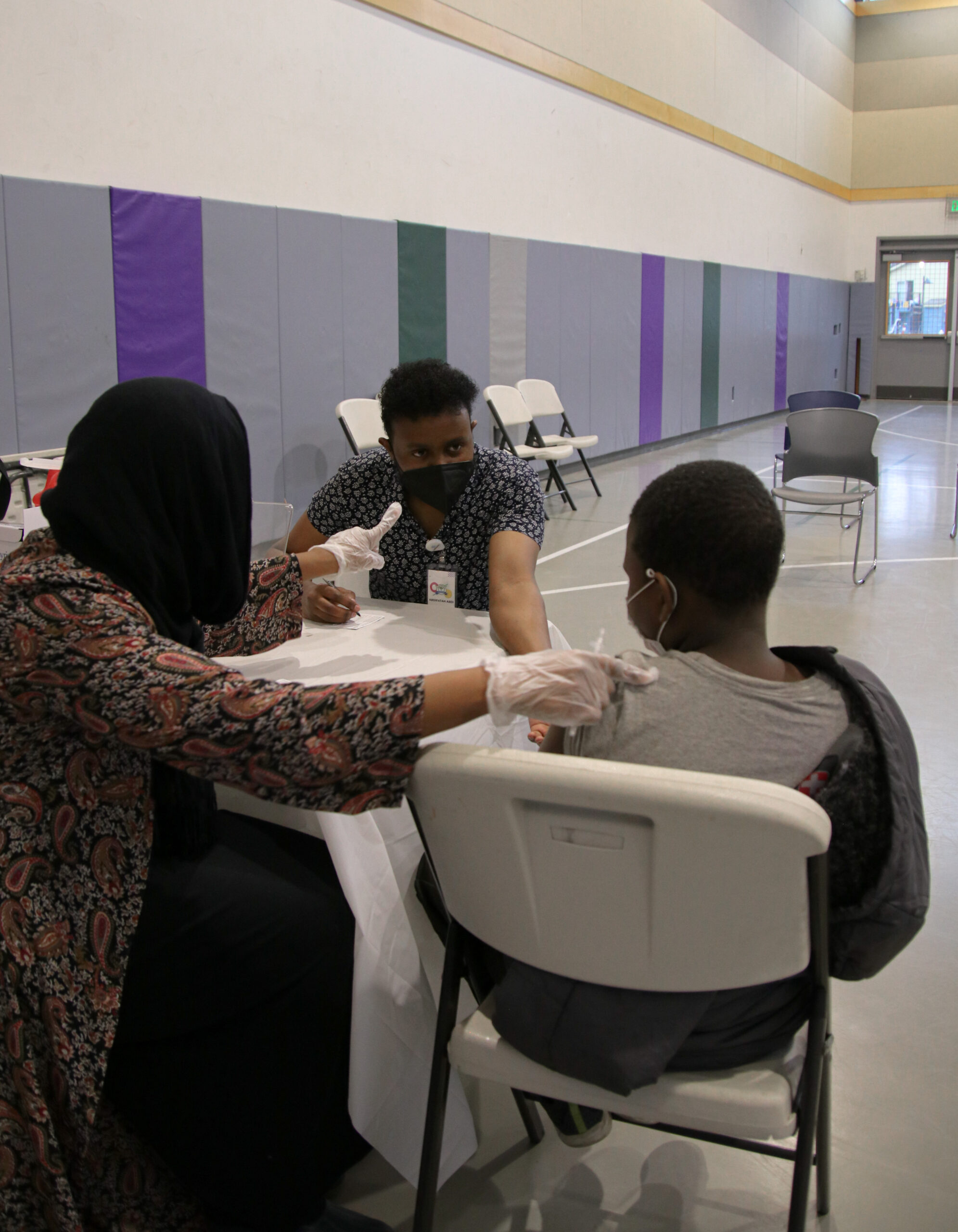Supporting the Fight for Vaccine Equity in Southern States
Throughout the nation’s history, the structural and institutional racism that the U.S. health system is built upon has grossly impacted communities of color. From medical maltreatment and bias to limited access to care, mistrust has led to general hesitancy of the health system among those most vulnerable. This hesitancy has remained consistent during the rollout of the COVID-19 vaccine in, for example, the presence of uniformed police officers and National Guard members at community testing sites deterring many immigrant communities. This, coupled with a lack of vaccine access and culturally competent providers, has inhibited the country’s ability to respond to a generational public health crisis.
Through Community Catalyst’s Vaccine Equity and Access Program (VEAP), advocates throughout the U.S. and Puerto Rico have been fighting tirelessly to combat lack of vaccine access, dis/misinformation and hesitancy. And what advocates have found is that contrary to what most believe, hesitancy is not only linked to injustices from Tuskegee Study, the stolen cells of Henrietta Lacks, or experimentation on enslaved Black women, but the racism faced by BIPOC individuals every day.

Our Work
Community Catalyst has supported the Centers for Disease and Prevention adult vaccination efforts through VEAP with the goal to increase vaccination coverage for adults in racial and/or ethnic populations experiencing disparities in the United States. Our partnership with three national organizations and 90 community-based organizations (CBOs) across the country have worked to develop and implement effective health communication and community engagement strategies designed to increase COVID-19 and influenza vaccine confidence and acceptance in BIPOC communities.
Pushback from Conservative State Leaders
Combatting the spread of COVID-19 has been a years-long process. Recommendations have shifted and evolved throughout the pandemic as more research on the virus has become available. For instance, mask mandates have been prevalent throughout the U.S. since the beginning of the COVID-19 pandemic in 2020 which was followed by the COVID-19 vaccine becoming available in 2021. But the success of both advancements have faced opposition from conservative leadership on the state and local level which has complicated efforts to combat the virus. States such as Florida, Texas and South Carolina have since been experiencing the effects of government officials rolling back on vaccine and mask mandates. Texas Gov. Greg Abbott responded to President Biden’s plea for COVID-19 vaccine requirements in businesses by informing the state of Texas that they cannot ask for proof of vaccination and asked lawmakers to make the executive action a state law. Abbott also threatened to fine cities and schools if they tried to enforce mask mandates. Similarly, in South Carolina, many government leaders shared COVID-19 and mask related conspiracy stories. These COVID-19 narratives put people in danger while also undermining the work that health advocates have been doing throughout the pandemic.
Impact on Partners and Communities
Harmful policy and social changes led by politicians in many “red” states have caused social implications for advocates on the forefront of COVID-19 and vaccine equity work. While our VEAP partners are dedicated to promoting vaccine confidence in their communities, they are not immune from the backlash that those with power in state government have caused on their work. A partner in Texas explains, “one of the greatest challenges was working against policy changes in Texas around COVID-19. This created a common perception among community residents that COVID-19 was not a serious disease and weakened our argument against receiving vaccines.” Similarly, in South Carolina, a partner shared that “continual changes to the guidance surrounding COVID have been hugely impactful on our ability to get people to take it seriously.”
Looking Toward the Future
Our support to our partners remains ongoing. While some things are unknown, there are steps we are taking to ensure that states and communities have the support and resources they need to combat misinformation and push for the equitable and safe distribution of vaccines. This includes tracking COVID-19 policies across states where our partners are working, addressing policy, systems and environmental change strategies and facilitating additional spaces for VEAP partners to collaborate and discuss the growing policy issues and the effects on their communities, counties and states. Our partners are working every day on critical matters of health equity and we are honored to support them through the ever-changing political landscape.